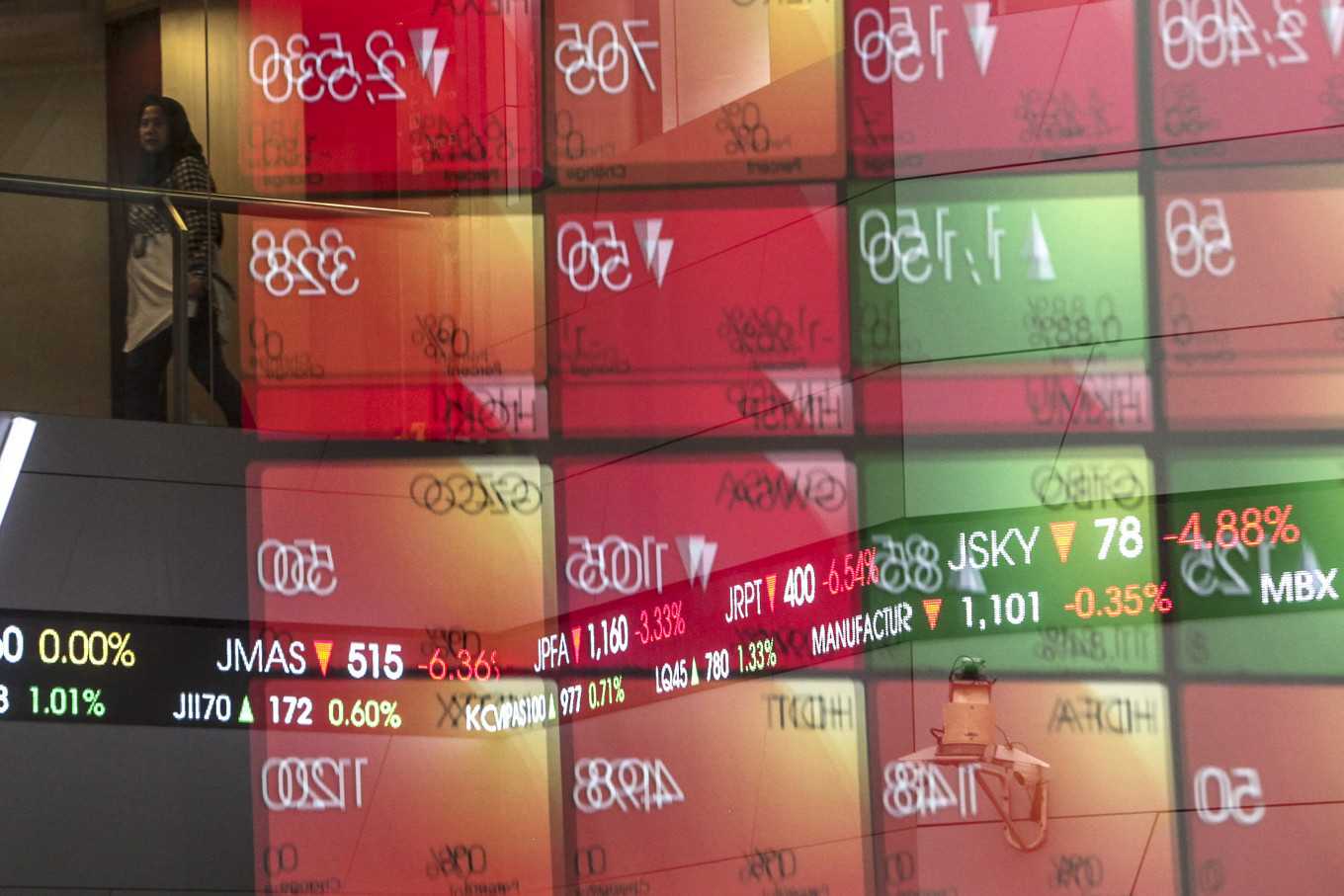Market players’ stock selling price predictions exhibit that uncertainty lingers
21 June, 2020

According to advertise players’ projections, the benchmark Jakarta Composite Index (JCI) will probably end the entire year at between 5,000 and 5,500, a broad range that shows how difficult it's been to predict marketplace movements as pandemic-related challenges will likely continue steadily to create volatility.
Schroders Indonesia expense director Irwanti said share price growth in both global and household markets would count on the reopening of economies and production of vaccines. Meanwhile, the amount of COVID-19 cases have been recently ignored by the marketplace, she added.
“It is extremely difficult to forecast anything right now,” Irwanti said through the Jakarta Post’s webinar Jakpost CLOSE UP: Buying Stocks: Best Strategies found in Volatile Times.
“Things are incredibly fluid at this time.”
Irwanti, whose company manages Rp 61.1 trillion (US$4.37 billion) found in assets found in Indonesia, estimates that found in the best-case situation, the JCI would drop 15 percent this season based on projections on earnings per share (EPS) progress in conjunction with government policy support.
This compares with Mandiri Sekuritas’ forecast of a 12 percent JCI drop to 5,540 at the end of the year, said head of equity research Adrian Joezer during a Mandiri Economic Outlook online forum.
“With the gradual easing of large-scale social limitations [PSBB] starting this month, we expect the JCI to reach our forecast since it can help publicly listed companies get over the impact of the pandemic,” Adrian said.
The brokerage firm, nevertheless, may possibly also further revise its projection according to how industry players would react to government policies and the most recent development of COVID-19 in Indonesia, including on how the economy would recover.
The JCI has misplaced 21.5 percent of its value so far this year carrying out a global currency markets crash in March due to investors’ concern over the pandemic’s impacts on the global economy. The current level is already dealing with the year’s low of 3,937, a 37 percent drop from the finish of last year.
Batavia Prosperindo Aset Manajemen (BPAM), which manages Rp 44.8 trillion in funds, tasks the JCI to close the year at between 5,000 and 5,300, representing a fall of 15 to 20 percent from go on year’s end level of 6,299.
“We will see continuous volatility, so expect that, get accustomed to that. Volatility isn't something you have to be fearful of. It should be seen as a chance specifically for individual investors to accomplish dollar expense averaging,” BPAM president director Lilis Setiadi explained in the Post’s webinar.
Dollar-cost averaging identifies an investment strategy where investors try to decrease the impact of marketplace volatility by dividing their investments into multiple more compact purchases, with frequent intervals in between each purchase.
Prudential Indonesia chief investment officer Novi Imelda said in another livestreamed press conference that short-term stocks’ volatility will be inevitable, nevertheless they would rebound accordingly as the economy recovered.
“Given that the market grows, our index will grow,” Eastspring Investments Indonesia chief investment officer Ari Pitojo said in the press conference.
Ari refrained from making a projection of whenever a rebound on track levels would occur but noted that industry consensus said it would take one . 5 to two years' period.
The federal government had projected a baseline economic growth of 2.3 percent this season and a 0.4 percent contraction under a worst-case scenario as a result of pandemic.
Looking by the JCI historical chart, Bank Commonwealth head of wealth administration and premier banking Ivan Jaya explained in another webinar that in the several past bear market segments, it took the JCI 11 to 18 months to recuperate to its previous highest level.
Mirae Asset Sekuritas brain of analysis Hariyanto Wijaya projected the Indonesia Inventory Exchange’s key gauge to reach 5,180 by the finish of 2020 found in its best-case scenario. Even in the best-case scenario, under which vaccines could be generated for the mass industry this season and crude palm oil prices (CPO) surge, the index could reach 5,830 at the end of the year, even now reflecting a 7.4 percent drop from this past year.
Mirae’s worst or bear-case scenario for the JCI is a fall to 4,160 by the finish of the entire year, reflecting an array of predictions that provides room for value volatility.
“This may happen if another wave of the coronavirus outbreak occurs, america enters a recession in 2020 and CPO prices collapse,” he said during the Post’s webinar.
Source: www.thejakartapost.com
TAG(s):
